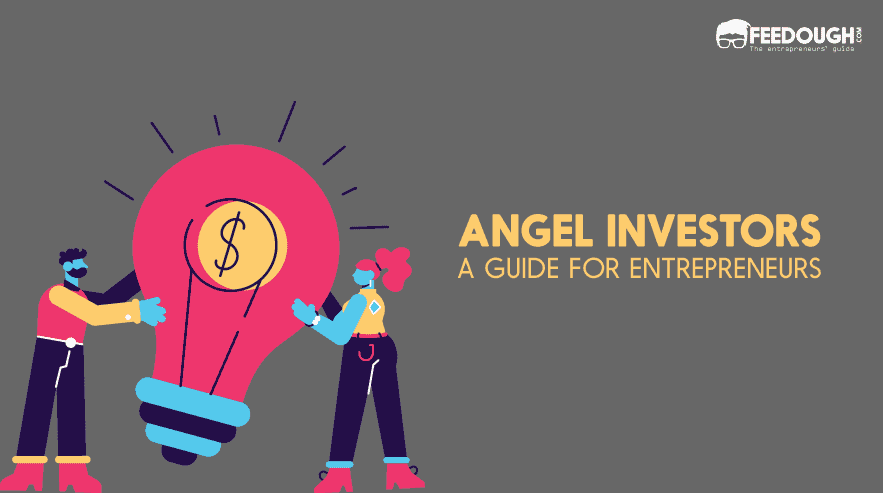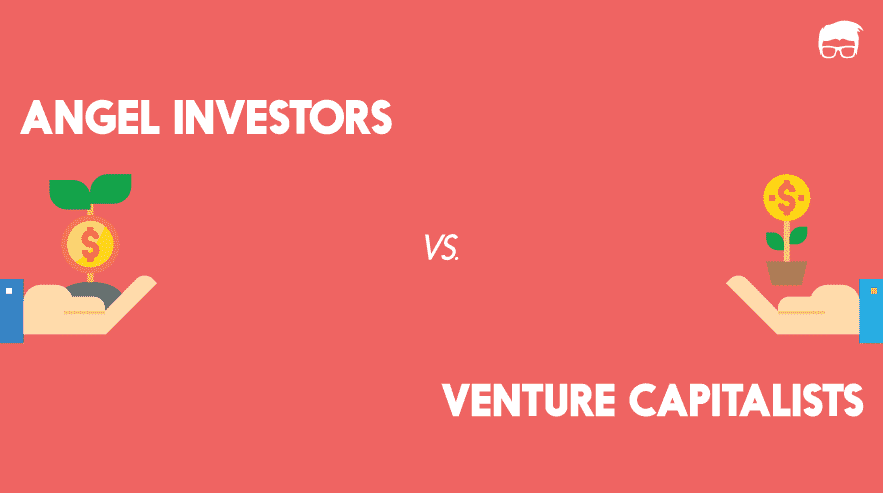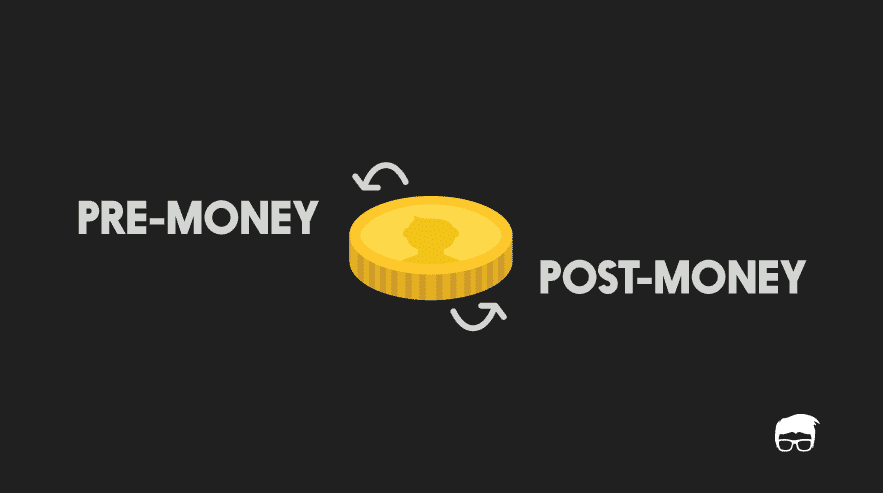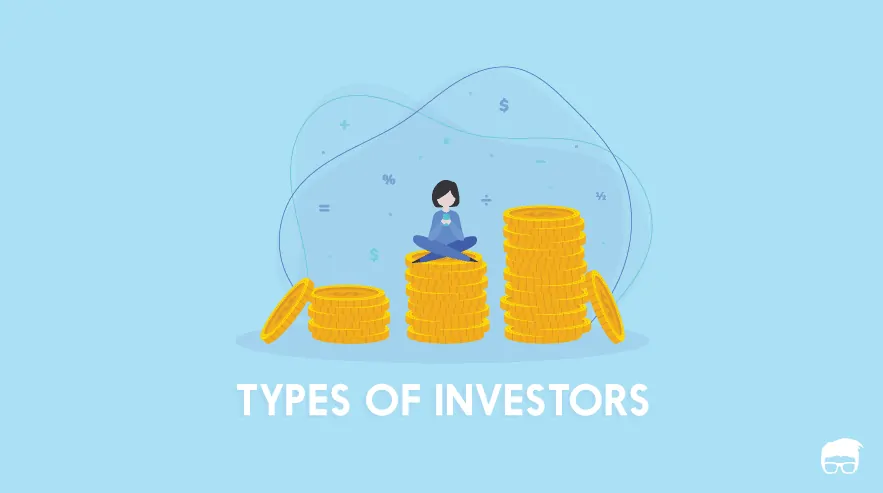While TV shows portray the startup investments to be fun and games, it’s the total opposite in reality. Sometimes, scoring an investment proves out to be more difficult than actually starting up. And often, not being able to score an investment ends up a startup.
Statistically speaking, only 0.91% of the startups get their funding from angel investors, and only 0.05% succeed in getting Venture Capital funding.
But what makes it so hard for startups to get investments? What do these startups or entrepreneurs lack?
Well, here are 13 reasons explaining why investors won’t invest in your startup.
Your Company Doesn’t Match Their Portfolio Or Interests
If you don’t already know, let me break this to you – investors won’t usually invest in a startup they can’t associate themselves with.
Most of the time, founders fail to even get meetings with the investors just because of the same reason.
Angel investors have their interest segments, and venture capitalist firms have their portfolios. You need to make sure you’re approaching the right investor who’ll be interested in the niche you operate in.
You go for investors who –
- Have invested in a startup of a similar niche before.
- Belong to a similar niche or has some experience in the same.
- Have profited from previous investment in a startup of a similar niche.
You may try not to spend much time on wooing investors who –
- Got burned by a previous investment in a startup of a similar niche.
- Doesn’t belong or have experience in the identical niche, or
- Hasn’t investment in a similar niche
You Have Come For An Investment A Bit Too Early
A usual startup witness six stages in its lifetime –
- Ideation
- Testing
- Traction
- Refinement
- Scaling
- Establishment
Every stage witnesses its own type of investor –
- Family and friends at the ideation stage
- Credit or crowdfunding during the testing stage
- Angel investors during traction and refinement
- Venture capitalists during scaling
- Corporates when established.
If you reach out to big investors during your startup’s initial stages (without any traction), chances are that they’ll turn you down.
Your Numbers Aren’t Enough
Sometimes, the investors’ expectations are different from the actual business numbers, which results in them turn down the deal.
Sometime, this happens because the businesses choose the wrong investor to pitch to. Suppose your startup has a worth of $1M. Now, this may seem huge. But for a venture capital fund of $1 billion, it may be too small for an investment.
Another reason could be them weighing the years of your existing with the traction you’ve received. If you’re asking $1M for 3 years old business that has just witnessed 30k transaction in 3 years. You could be turned down because your numbers don’t back up your valuation and
The Cash Flow Is A Problem
Not all startups witness a positive cash flow in the beginning. However, investors do look for proper planning, management, organisation, and a road-map to convert the negative cash flow to positive.
Why, you ask?
Because 82% of the businesses that fail cite poor cash management as a factor behind their failure.
You could have a company with a revenue of $10M, but maybe your business model is such that your company can’t get cash flow positive until you reach $200M in revenue. This will require a lot of money, faith, and risk for an investor to carry you which (s)he might not be ready to take.
There’s No Barrier To Entry
Investors do look for a unique selling proposition – an idea or an execution that is proprietary. They prefer patents, exclusive contracts, and other barriers to entry.
Investors look for long term benefits. If they invest in a business, they look for whether the company has the potential to remain the leader or a major market-share-holder for a long term till their exit.
They Have Already Invested In A Similar Business
It’s rare for an investor to invest in two similar businesses in the same segment. If you own a T-shirt retail company and approach an investor who has invested in a similar company. There are high chances that (s)he’ll say no – precisely because (s)he’s backing your competitor already.
They Don’t See Transparency In The Pitch
Startup investors invest in the eligibility, motivation, and the honesty of the team. If they feel that you’re hiding vital information or misreporting stats relating to –
- Manufacturing
- Marketing
- Finance
- Team experience
- Competition
- Existing traction and numbers
They Don’t Feel That You Know Your Key Performance Indicators (KPIs)
The investors look for founders who truly understand their businesses’ financials and key metrics that demonstrate how effectively their company is achieving key business objectives. You might find it hard to get investment if you don’t understand your top priorities and critical metrics that represent those priorities.
Investors may turn down your offer if they don’t get substantial evidence of you understanding your KPIs and providing insights on your plans to improve them.
Your TAM Is Too Small
The total addressable market denotes the maximum growth opportunity for a startup. While many founders try to scale down TAM to make it less ambiguous, many scales it down to a level that the market looks to be too small to start a business in.
If the investor believes that your TAM is too small for his investment to produce fruitful results, he might turn down the offer.
You Don’t Have A Deep Understanding Of Your Competition
“How are you different from XYZ.”
“I’ve seen a similar company operating in your niche. Why are you special?”
These and other similar questions often come into play during the pitch. If the investors aren’t convinced with your competitive advantage, differentiated value proposition, and unique product-market fit, they might turn your offer down.
You Don’t Have Skill, Education, Or Experience To Back Your Idea Up
Investors look for a team with proven skill, education, or experience to back their idea up. If you’re an entrepreneur with a proven history of a successful startup before, you might get preference over other entrepreneurs with no such experience.
Moreover, investors also prefer if you select your team based on their qualification and experience rather than their relationship with you.
You Don’t Have The Right Business Model Or Business Plan
A business plan explains your vision and goals and how you plan to achieve those goals – all expressed quantitatively. A business model, on the other hand, is how you operate and make money.
If any of these fails to impress the investors, they may reject your fundraising proposal.
They Think That You’re Uncoachable
Most investors invest as they see the value they can provide to the startup. If they believe that you are too adamant about changing or are being uncoachable, they may turn down your offer.
They predict this during your pitch. If you don’t listen to what they have to say during your pitch, they might feel that you won’t listen to them afterwards as well.
Go On, Tell Us What You Think!
Did we miss something? Come on! Tell us what you think about our article on Why Won’t An Investor Invest In Your Startup? in the comments section.
A startup consultant, digital marketer, traveller, and philomath. Aashish has worked with over 20 startups and successfully helped them ideate, raise money, and succeed. When not working, he can be found hiking, camping, and stargazing.
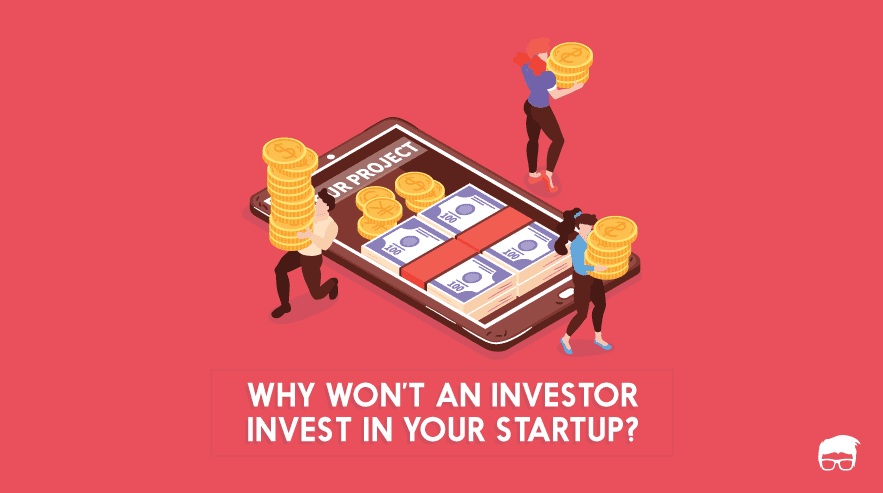
![How To Get Startup Funding [The Complete Guide] startup funding guide](https://www.feedough.com/wp-content/uploads/2022/08/startup-funding-guide.webp)
